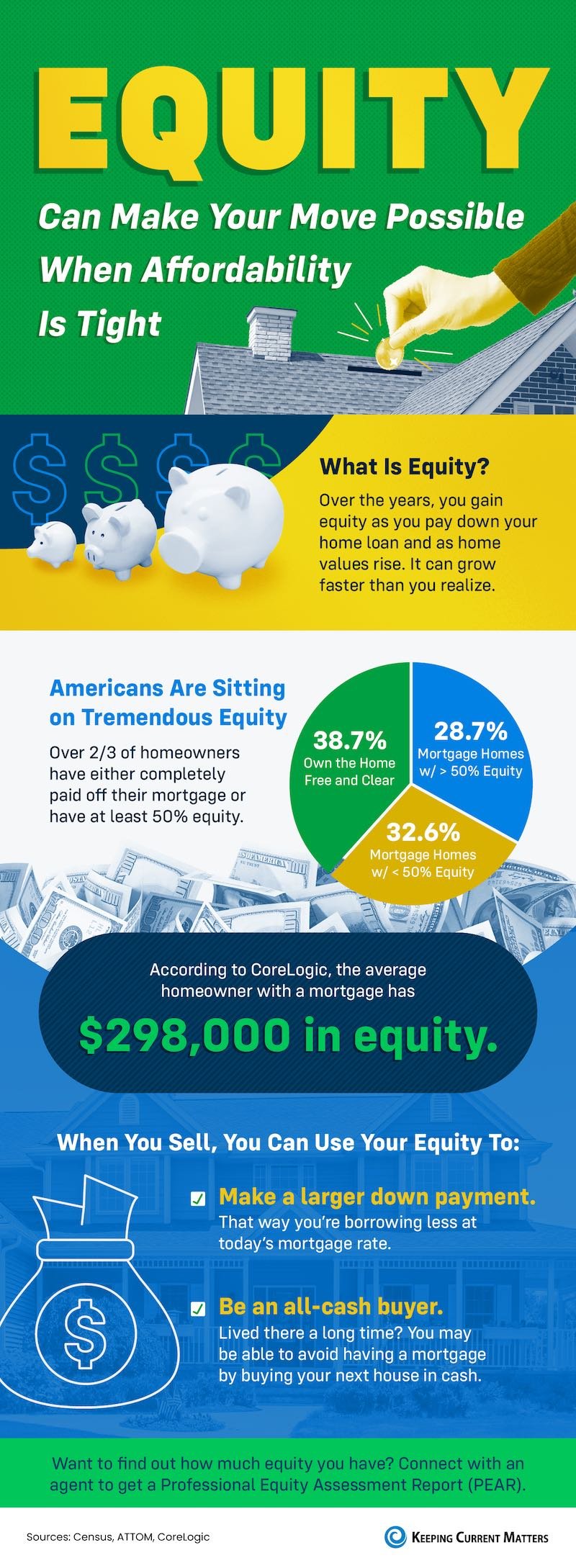You might expect that mortgage rates would be falling right now after the Federal Reserve cut interest rates by a half-point last month.
Instead, mortgage rates jumped higher. The latest data from Freddie Mac showed that the average 30-year mortgage rate had increased to 6.4%, more than a quarter-point higher than it was two weeks ago.
The news is probably an unwelcome surprise to the folks who had been hoping for lower interest rates to finally come off the sidelines and start shopping for a home.
Here’s what’s going on — and what it means for those trying to buy a home now.
The Fed doesn’t set mortgage rates
Here's the thing: The Fed can influence mortgage rates but it doesn't set them.
Instead, mortgage rates mainly follow a different number: the yield on 10-year Treasury bonds. That yield has gone up recently for a number of reasons, including because investors are expecting the Fed to be a little more cautious in cutting rates after the jumbo-sized cut last month.
But it's not just the 10-year Treasury yield influencing mortgage rates.
The mortgage lender needs to cover its costs and make a profit, so it adds its own percentage on top, for example. And the specific mortgage rate that you get will depend on your own factors, like your credit score and the size and type of loan you’re getting.
That said, despite the recent uptick, mortgage rates are still more than a full point lower than they were this time last year, falling as investors anticipated the Fed's rate cuts and factored those into the 10-year Treasury yield.
The lower mortgage rates compared to a year ago have been good for some homeowners. Lots of people have taken advantage to refinance their mortgages if they bought their homes in the last couple of years, when rates were higher.
The lower rates available now mean those homeowners can potentially save hundreds of dollars a month if they refinance.
Mortgage rates have ticked up slightly in October
Weekly average for a 30-year fixed-rate mortgage
Where mortgage rates go from here
So where are mortgage rates headed? That's difficult to answer, since mortgage rates are affected by so many factors.
But there's one thing that experts generally agree on: They likely won't go anywhere near the levels of a few years go.
In 2019, for example, rates for a 30-year fixed-rate mortgage ranged from about 3.75% to 4.5%. And they dropped to as low as 2.65% in early 2021 as the pandemic wore on.
Many forecasts have rates near 6% at the end of this year — and falling to about 5.8% next year.
“I think the new normal is maybe 6% mortgage rate,” says Lawrence Yun, the chief economist at the National Association of Realtors. “If we are lucky, maybe we get to 5.5% mortgage rate. Or if we are unlucky, maybe the mortgage rate trends back up towards 7%.”
But Yun is confident one of thing: The days of 3% and 4% mortgage rates are over — at least in his lifetime, he says.
So what to do now?
For homebuyers, the ever-shifting rate environment can foster uncertainty: Is it better to wait for mortgage rates to fall, or start looking now?
Experts advise against trying to time the market — including when it comes to buying a home. That's for two reasons.
First, if you buy a home and then mortgage rates do fall, you can refinance your mortgage and take advantage of the lower rate. But if you wait and rates go up, it just gets harder to afford a home.
Second, home prices do tend to rise over time.
Yun says that even people who bought homes at much higher mortgage rates — like 15% in the early 1980s — have typically had those purchases turn out well, because of rising home values and the ability to refinance as rates fell.
How's the housing market looking? There's some good news
Here's a positive development for buyers: There's more inventory now. The number of homes for sale in September was 6.4% higher than a month earlier and 33.6% above a year ago, according to a report from the brokerage RE/MAX, which looked at single-family homes in 52 markets.
Meanwhile, the days a house stays on the market have been increasing — suggesting the market is getting a bit less competitive.
"I think there is more opportunity for buyers to get in there,” says Sara Briseño Gerrish, a real estate agent at RE/MAX Unlimited in San Antonio.
And there's another indicator showing fewer buyers to compete against: The number of people applying for mortgages has fallen for three straight weeks (though it's still 7% above this time last year).
But home prices remain high
Mortgage rates aren’t the only factor affecting the housing market: Home prices matter too. And, unfortunately for buyers, those remain high.
The median home price has risen about 50% since early 2020, with a major spike during the pandemic. The price increases have slowed, but prices haven't really dropped. The median existing-home sales price in August was $416,700, about 3% higher than a year earlier — showing the stickiness of high prices.
The median home price has risen almost 50% over the last 5 years
Median sales price for all homes, by month
The season also has an impact. Homebuying picks up in the spring and peaks in June as warm weather and the end of the school year encourage people to shop. The market typically slows in late summer and throughout the fall, reaching its slowest period during the winter.
That can make fall a good time to shop, that is, if you can find a home that fits your needs: Less competition can mean lower prices and more ability to negotiate.
Fannie Mae is predicting that home sales could be 10% higher next year, coming off the very low levels we’ve been seeing. But it could be spring before the market really picks up.
For the original article dated October 18, 2024 6:00 AM ET by Laurel Wamsley, visit NPR.org


















